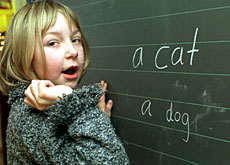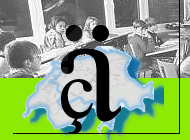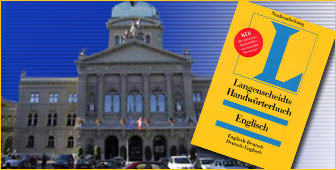English – fifth language of Switzerland?

While the majority of Swiss speak one of the four national languages, the number using foreign tongues - especially English - continues to rise.
According to a recent study, almost 64 per cent of Swiss speak German, 19.5 per cent French, 6.6 per cent Italian and less than 0.5 per cent Romansh.
But almost ten per cent of people living in Switzerland do not count one of the national languages as their main tongue.
Since 1950 the proportion of foreign language speakers has risen steadily and now languages such as Serbian, Croatian, Albanian, Portuguese, Spanish, Turkish and Kurdish – not to mention English – are more frequently spoken than Romansh.
Of all the foreign languages spoken in Switzerland, English is by far the most dominant and could soon become the main foreign language taught in schools in many cantons.
So is English destined to become the principal lingua franca between the different linguistic regions of Switzerland?
A decision last year by canton Zurich to make English – rather than French – the first foreign language in the school curriculum has made this more likely.
The End of Switzerland?
Canton Zurich’s decision met with a strong reaction in French-speaking Switzerland.
The day after a press conference in September 2000 by Zurich’s chief of education, Ernst Buschor, the French-language newspaper “Le Temps” asked if the inclusion of English in the canton’s school curriculum spelled the “End of Switzerland?”
Many people, particularly in the French- and Italian-speaking areas of the country, feared the choice of English would undo the glue in the Swiss national identity.
While Switzerland’s linguistic minorities need to learn German for professional reasons, Swiss from all language areas find it useful to acquire a knowledge of English.
Many parents want their children to have access to the language of globalisation. In the field of scientific research, in some professions and at the higher levels of UBS, Swisscom, and Novartis, English is already used for in-house exchanges.
Decline of Romansh and Italian
But while French and German are continuing to hold their own against the onslaught of English, Romansh is rapidly losing ground.
In 2000 Switzerland’s fourth national language was spoken by just 0.46 per cent of the population – or around 34,000 people – compared with 0.6 per cent 10 years before.
This trend has led a number of Romansh representatives to ask canton Graubünden for stricter measures to protect the language.
One example would be to oblige dual-language communities – where Romansh and German are spoken – to use Romansh as the language of teaching and administration.
Fewer people are also speaking Italian. Some 7.6 per cent of people living in Switzerland used Italian as their main language in 1990. Ten years on this figure has dipped by one per cent.
The drop is in part due to the diminishing number of Italians amongst Switzerland’s foreign population. In 2000, Italians accounted for 21.4 per cent of the country’s foreign population, compared with 60 per cent in 1960.
Federalism – a double-edged sword
It remains to be seen how many cantons will ultimately embrace English as their first foreign language.
But the debate on English highlights one of the fundamental problems which has be to confronted by the Swiss federalist system: the possibility of a clash between the autonomy of the cantons with respect to education, and an appreciation of the needs of cultural minorities, and the subsequent effect on the sense of unity within Switzerland.
swissinfo/ Andrea Tognina
Canton Zurich has chosen English as first foreign language in schools.
One in ten do not count a Swiss national language as their main tongue.
Almost two-thirds of Swiss speak German, 20 per cent speak French.

In compliance with the JTI standards
More: SWI swissinfo.ch certified by the Journalism Trust Initiative











You can find an overview of ongoing debates with our journalists here . Please join us!
If you want to start a conversation about a topic raised in this article or want to report factual errors, email us at english@swissinfo.ch.